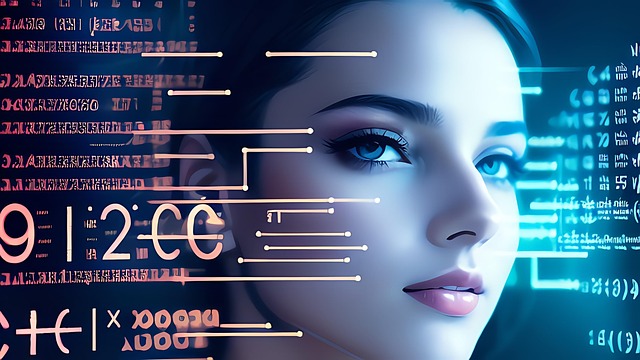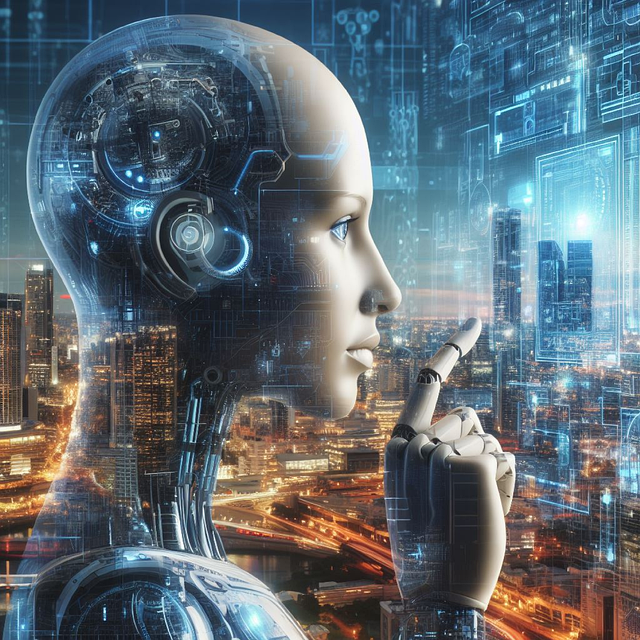An Open Chatbot (OChatbot) is an AI-powered conversational tool using NLP for interactive user engagement. It learns from user inputs via machine learning, offering automated assistance, improved customer service, and personalized experiences across platforms. Designing effective conversations involves mapping user journeys to guide responses. The choice of AI technology depends on chatbot complexity; rule-based systems or NLP models are suitable for simple tasks, while Deep Learning models and Large Language Models (LLMs) enable advanced contextual understanding. Successful training requires high-quality, diverse datasets, preprocessing, and continuous updates. Integration into platforms like websites and apps is vital, with testing and user feedback driving ongoing enhancements to ensure accurate, relevant interactions.
Building an AI Chatbot with OChatbot is a transformative step towards enhancing user engagement. This comprehensive guide unravels the process, from understanding the core concept of OChatbot and its purpose to designing intuitive conversation flows. We’ll walk you through mapping user journeys, selecting the right AI technology, and gathering essential data for training. Learn how to deploy your OChatbot effectively and continuously refine it, ensuring a seamless and ever-improving conversational experience.
- Understanding OChatbot: Defining and Purpose
- Designing the Conversation Flow: User Journey Mapping
- Choosing the Right AI Technology for Your Chatbot
- Training and Data Collection: Fueling the AI Engine
- Deployment and Continuous Improvement: Bringing OChatbot to Life
Understanding OChatbot: Defining and Purpose

An OChatbot, short for “Open Chatbot,” is an advanced artificial intelligence application designed to engage in conversational interactions with users through natural language processing (NLP). Unlike basic rule-based chatbots, OChatbots leverage machine learning algorithms to continuously learn and adapt based on user inputs. Their primary purpose is to provide automated assistance, enhance customer service, and deliver personalized experiences across various platforms, from websites to messaging apps.
These chatbots are built with a deep understanding of context, allowing them to maintain coherent conversations and offer relevant responses. They can perform tasks such as answering frequently asked questions (FAQs), guiding users through processes, providing product recommendations, and even offering basic entertainment by engaging in casual conversation. OChatbots’ versatility makes them indispensable tools for businesses looking to improve efficiency, reduce costs, and better connect with their customers.
Designing the Conversation Flow: User Journey Mapping

Designing the conversation flow for an AI chatbot involves understanding and mapping out the user’s journey. This process begins by identifying key touchpoints where users interact with your ochatbot. It’s akin to drawing a map of their experience, from initial inquiry to final resolution. By visualizing these interactions, you can anticipate user needs, potential questions, and smooth transitions between topics.
User journey mapping allows you to structure conversations logically, ensuring the chatbot provides relevant and helpful responses at each stage. This strategic approach enhances user satisfaction by creating a natural, intuitive dialogue that feels more like conversing with a human rather than navigating a complex tech tool.
Choosing the Right AI Technology for Your Chatbot

When building an oChatbot, selecting the appropriate AI technology is a pivotal step. The choice depends on your chatbot’s intended purpose and complexity. Simple chatbots requiring basic conversational abilities can leverage rule-based or natural language processing (NLP) models, which are more accessible and easier to implement. However, for advanced chatbots that understand context, learn from interactions, and generate human-like responses, deep learning models like Transformer architectures and large language models (LLMs) are the way to go.
Consider factors such as the chatbot’s interaction scope, response accuracy requirements, and available data when making this decision. LLMs, for instance, demand vast amounts of training data but offer sophisticated understanding and generation capabilities. In contrast, rule-based systems are more limited but simpler to train, making them suitable for narrow, predefined conversational flows. Thus, aligning your technology choice with your chatbot’s goals is key to creating an effective and engaging user experience.
Training and Data Collection: Fueling the AI Engine

Training and data collection are critical steps in building an effective AI chatbot, serving as the fuel that powers its engine. The process begins with gathering a diverse and high-quality dataset relevant to the chatbot’s intended purpose. This data can include text from various sources such as customer support logs, online forums, books, articles, and even social media posts. The more varied and contextually rich the data, the better equipped the chatbot is to understand and generate human-like responses.
Once collected, the data undergoes preprocessing to ensure consistency and remove any noise or irrelevant information. This involves tasks like text cleaning, tokenization, and sometimes even manual labeling to teach the chatbot specific nuances. The preprocessed data is then used to train machine learning models, often based on deep learning architectures, which learn patterns and relationships within the text. Regular updates and retraining with new data are essential to keep the chatbot up-to-date and capable of handling emerging trends and user queries.
Deployment and Continuous Improvement: Bringing OChatbot to Life

Once your AI chatbot, like OChatbot, is trained and ready, deployment is the next critical step in bringing it to life. This involves integrating the chatbot into relevant platforms or applications where users can interact with it. Whether it’s a website, mobile app, messaging platform, or voice assistant, ensuring seamless functionality and user experience is paramount. A robust testing phase is essential to identify and fix any issues before going live.
Continuous improvement is an ongoing process in AI chatbot development. By gathering user feedback, analyzing interaction data, and monitoring performance metrics, developers can refine OChatbot’s responses, expand its knowledge base, and enhance overall capabilities over time. Regular updates and iterations ensure the chatbot remains relevant, accurate, and engaging, creating a positive and evolving user experience.
Building an effective AI chatbot, like OChatbot, involves a strategic blend of understanding user needs, selecting the right technology, and continuous improvement. By mapping out conversation flows, gathering quality training data, and iteratively refining your chatbot’s performance, you can create a powerful tool that enhances user experiences and drives business value. Remember, an OChatbot is not just a technical marvel but a sophisticated assistant designed to navigate complex interactions with ease.
